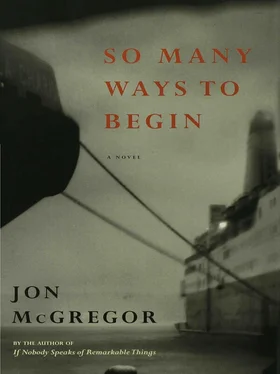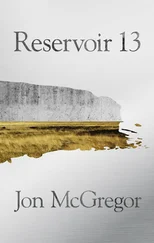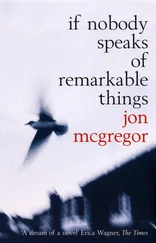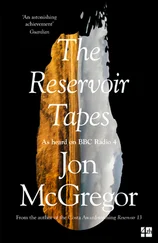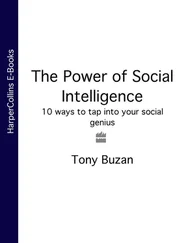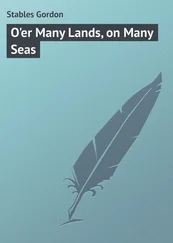He sometimes wondered what would have happened if he had lost his job then. He tried to construct an alternative story from the scraps of what would have remained, wondering if he would have gone to see Eleanor again, wondering if he would have found another job in a museum or whether that would have been the end of it, wondering whether he would have read and re-read Eleanor's letters with bitter regret instead of excitement and then fond recollection. He wondered what other story he would have ended up with, carried on the backseat of his car to show someone who at long last wanted to know.
But it was impossible to say, he knew. There was no clear parallel life into which he would have fallen had his job been taken away from him, just as there hadn't been a celibate loneliness waiting for him in the event of his failing to notice Eleanor in the tea room that day. Just as he hadn't been irrevocably formed, or broken, the moment Julia had said you can leave him with me, I'll look after him until you get back. It was more complicated than that. Lives were changed and moved by much smaller cues, chance meetings, overheard conversations, the trips and stumbles which constantly alter and readjust the course of things, history made by a million fractional moments too numerous to calibrate or observe or record. The real story, he knew, was more complicated than anything he could gather together in a pair of photo albums and a scrapbook and drive across the country to lay out on a table somewhere. The whole story would take a lifetime to tell. But what he had would be a start, he thought, a way to begin. What he had would be enough to at least say, here, these are a few of the things which have happened to me, while you weren't there. This is a small part of how it's been. You don't need to guess any longer, you don't need to imagine or wonder or dream. This is a small part of the truth.
19 Identity badge, Junior Curatorial Assistant, Coventry Museum, w/photo, 1967
He came out of work one evening, almost a year after Julia had first let everything slip, and saw his mother, waiting for him. He stopped, hesitating, looking back through the foyer towards the stairs to his office, wondering if there was some work he could catch up on. He carried on down the steps, saying goodbye to two of his colleagues and catching Dorothy's eye as she turned round. She smiled at him, and he nodded, glancing away up the street.
Hello love, she said. I just got off the train and I thought I'd see if you were around, you don't mind, do you? Who are those two? I don't think I've met them before. She was talking quickly, her hands fidgeting at her waist, and she leant in towards him as he told her that that was Paul from Conservation and a girl called Anna who was doing her second work placement from university. He didn't look at her as he spoke. Well, they both seem nice, she said, her hands still pulling at each other. Is work going okay then? He shrugged and started walking, and she walked with him, saying oh, well, as long as work's going okay, her voice trailing out as she waited for him to pick up the thread and tell her something more, some new project he'd been working on, a disagreement he'd had with another curator, something funny a visitor had said, any small part of his day he might want to share with her. But he said nothing.
They turned the corner towards the two cathedrals, Dorothy having to break into a half-run occasionally to keep up with his long strides. She said, I just got back from seeing Julia. She said, she's not doing too badly, all things considered. He didn't reply. She said, the nurses there are doing a very good job with her; it can't be easy.
They walked past the old cathedral, and David glanced up at the ruined north wall, the unroofed sky a burnished August blue through the arched hole where the windows had once been. He'd seen archive photos of the fire, the great billowing folds of flame reaching up through the sky to light the bombers' path, and he'd read the accounts of the churchwardens who'd put themselves on fire duty, chasing across the lead roof with buckets of sand, booting fizzing incendiaries into the road until they'd had to retreat down long ladders and watch the whole city burn. She said, I went over and cleaned her house afterwards. It doesn't look like Laurence has been there for a long time. We'll have to think about doing something with all her things sooner or later, I mean, there's a whole lot of it in there. We'll have to talk to someone about it, she said. She touched his arm, and he jerked it away. Oh, she said. Sorry love. He didn't say anything.
They walked past the looming walls of the new cathedral, with its tall narrow windows letting the light squeeze in, with the skeletal steel spire that crowds had gathered to watch being lowered into place by helicopter, and she said, well anyway, we'll have to talk to Laurence about it, when the time comes. She said, I don't suppose he'll be much use though. David didn't say anything. They stood across the road from the bus station, waiting for the traffic to clear so they could cross. She said, when are you going down there next? She said, I'm sure she'll be very pleased to see you again you know. A heavy lorry clattered past, loaded with rubble and soil from a building site, and they both stepped back.
She said, David, don't be like this, please. She was out of breath from trying to keep up with him. She said, David, please, I can't.
They crossed the road, and as they walked round past the bus station she said, I thought I might have a go at getting the garden tidied up this weekend. It's been getting a bit out of hand again. She said, of course it was your father who was the expert, and they both flinched a little at her use of the no longer comfortable word. She glanced at him, and continued, saying, but I imagine he'd have a thing or two to say if he saw the garden now, don't you think? He looked at her, not quite meeting her eye, and made a gesture with his head which was almost a nod. She sighed impatiently, and said, yes, well, it's up to you whether you want to give us a hand or not. Give me a hand I mean, she said, correcting herself.
She said, David, are you even listening to me? They crossed the route of the new ring road, following the fenced footpath between a maze of trenches and banks and towering concrete stilts. She said, this isn't going to make things any easier you know. She said, I mean, I know you're upset, but I don't see how this is going to help David. He didn't say anything. She held his arm, and said, David, and again he pulled it away.
They walked through the streets beyond the city centre, past flat-fronted terraces which opened straight out on to the street, past bay-windowed semis by the park, past a row of houses which had once been watchmakers' workshops, the attic windows built tall and broad to let the light flood in on their intricate work. They crossed the road by a parade of shops and started walking up the long hill which led towards their house.
She stopped for a moment to get her breath back, and when he didn't wait for her she scurried after him, turning to try and meet his eye, saying, David, how long are you going to keep this up? He didn't say anything. She said, what do you want me to do? She said, David, I've said I'm sorry; I've said it over and over again; what else do you expect me to do? It's not fair David, she said, it's just not fair. And if it hadn't been for people walking nearby she would have been shouting, the force of it already trembling in her voice.
Do you think I never worried about this? she said, a moment later. He was silent, and she said again what she'd already said so many times: I was going to tell you; I wanted to tell you. I was waiting for the right moment and I never found it and then it only got harder, I couldn't think of a way to begin. I'd have had to tell your father as well, and I thought you'd both be better off not knowing. She reached into the sleeve of her jacket for a tissue, and David still didn't speak.
Читать дальше
Конец ознакомительного отрывка
Купить книгу
